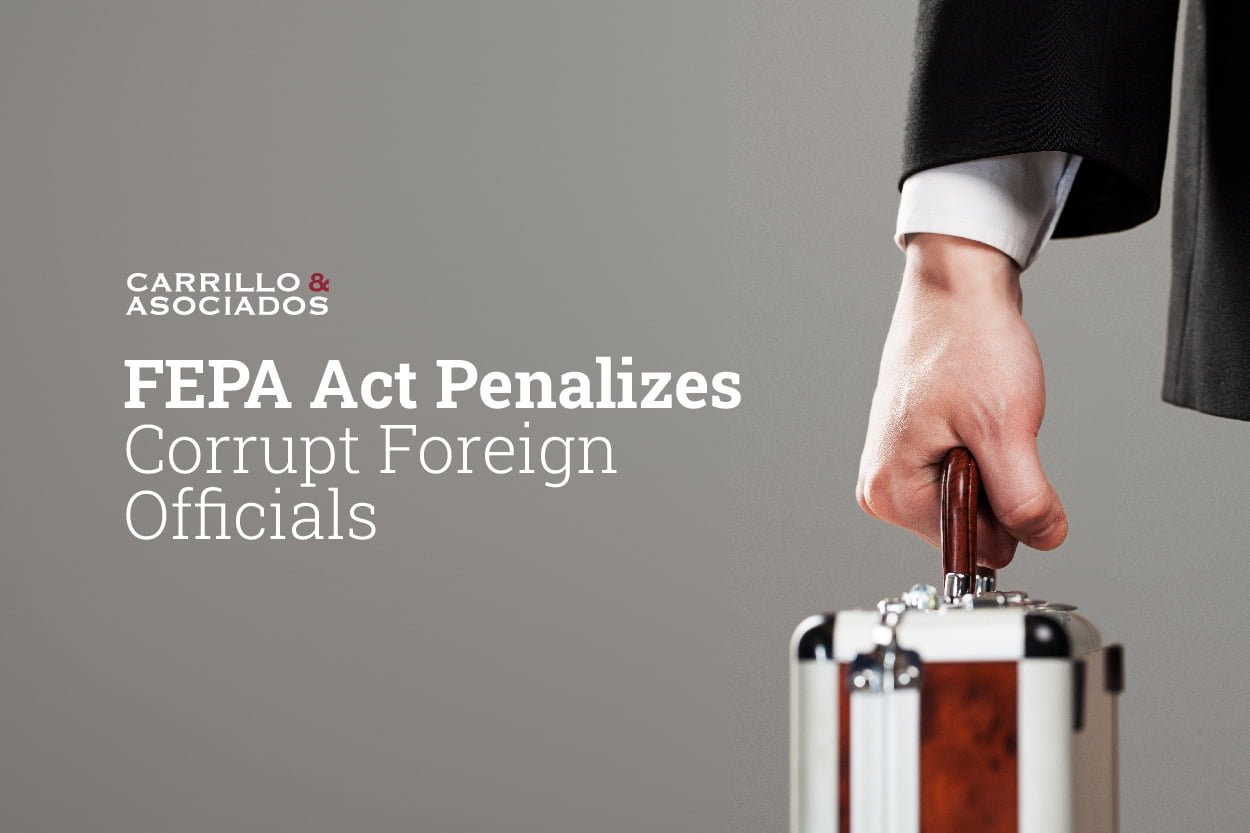
Newsletter #160
On January 2, the President of the United States signed into law the National Defense Authorization Act of 2024 (NDAA). This legislation includes the Foreign Extortion Prevention Act (FEPA), a new effort to protect U.S. citizens and businesses who may be victims of bribes and extortions, and deter foreign officials from soliciting and accepting them.
FEPA defines foreign official as:
- Any bureaucrat, employee or representative of a foreign government or any department or agency.
- Persons acting unofficially on behalf of such agencies or entities.
- Any public international entity (United Nations, UNICEF or the Organization of American States, for example).
- Members of foreign political parties in high positions. It excludes candidates who are running for office.
FEPA makes it a federal crime for foreign officials to demand, receive or accept bribes from:
- Issuers[1] and anyone acting on their behalf. These are companies required to file periodic reports with the Securities and Exchange Commission (SEC) because they participate in the U.S. stock or over-the-counter market.
- Domestic natural or juridical persons and anyone acting on their behalf. American citizens or residents, as well as any American organization, within the scope of the law.
- Certain individuals and entities that violate the provisions of the law while in U.S. territory.
Historically, U.S. law has punished the offering of bribes by companies or individuals seeking to obtain improper business advantages.
FEPA aims to attack the demand for these bribes as a new effort to combat corruption. The law highlights the importance of American companies having robust anti-corruption programs in compliance with the provisions of the FEPA.
FEPA provides for penalties of up to 15 years of imprisonment, fines of up to USD$ 250,000, or three times the monetary equivalent of the bribe received, or both.
[1] Issuer: any company listed on a stock exchange or participating in the U.S. over-the-counter market.

